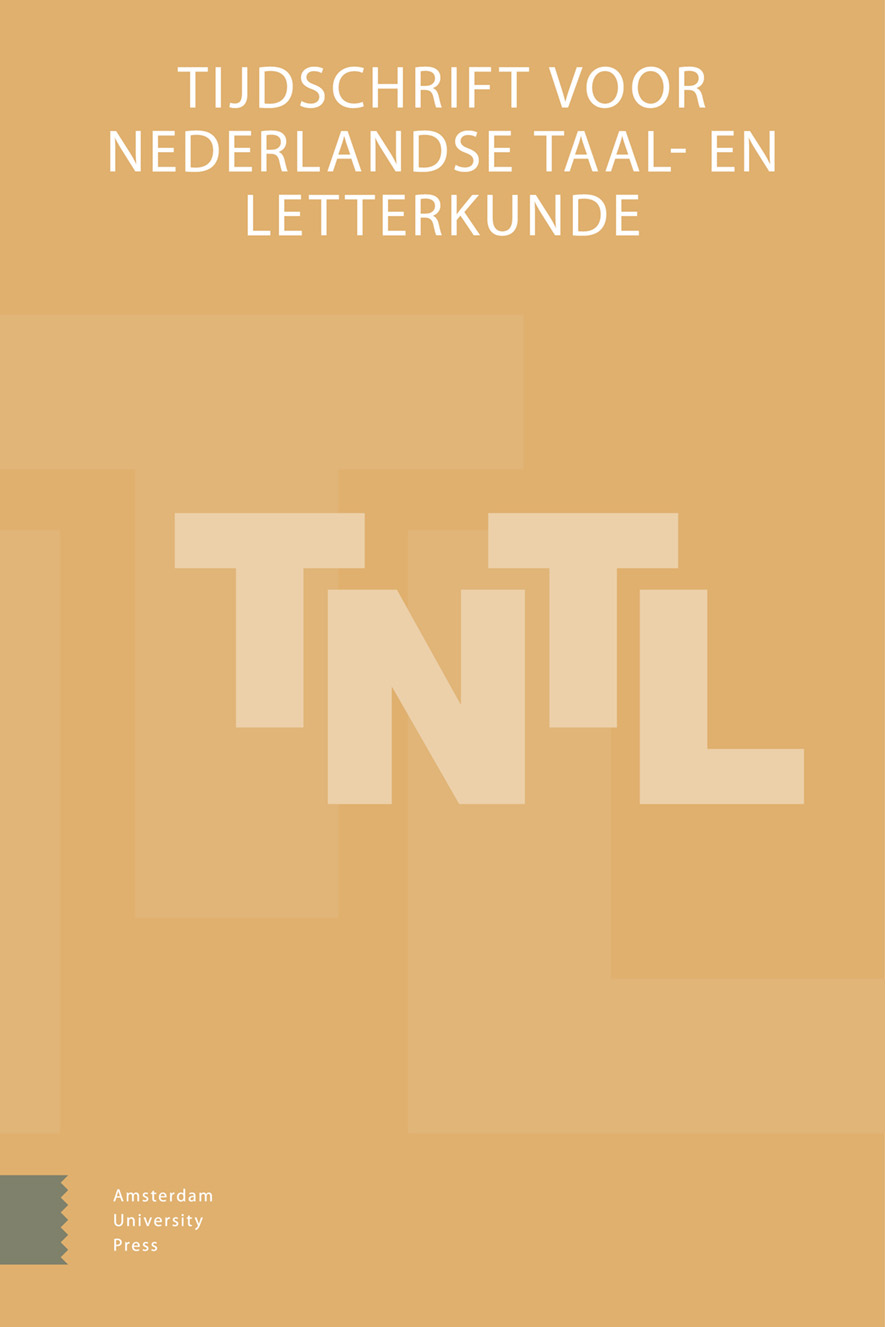- Home
- A-Z Publications
- Tijdschrift voor Nederlandse Taal- en Letterkunde
- Previous Issues
- Volume 141, Issue 1, 2025
Tijdschrift voor Nederlandse Taal- en Letterkunde - Volume 141, Issue 1, 2025
Volume 141, Issue 1, 2025
- Van de redactie
-
- Artikel
-
-
-
Met open armen?
More LessAuthors: Maaike van Leendert & Helleke van den BraberAbstractThis paper focuses on the resources Dutch literary authors are prepared to mobilize in order to strengthen their (financial, artistic, moral and societal) position. Using gift theory to tie in with the growing social and scientific attention to the subject of care, we first examine what conditions authors place on accepting care from governments, literary stakeholders, and each other. Our results show a clear need for and appreciation of care, as well as a certain reluctance to ask for or accept care. Accepting care becomes easier when authors can see it as part of a broader context of community spirit or community building, or experience it as part of a balanced, equal or reciprocal exchange. We also found that respondents place additional conditions on accepting the support of private donors. They feel resistance to asking for or accepting private donations if it makes them feel dependent or seems to jeopardize their (artistic) autonomy.
-
-
-
-
De vele islams van Kader Abdolah
More LessAuthor: Ewa DynarowiczAbstractIn the aftermath of the 9/11 terrorist attacks, the popular Dutch author of Iranian origin, Kader Abdolah, felt compelled to respond to the anti-Muslim discourse prevailing in the Dutch public debate and to publicly justify his position towards Islam. In doing so, he explicitly took up the role of a cultural intermediary between the West and Islamic culture. This article explores how he set off to accomplish this goal in his novels written during the 2000s. It focuses on the portrayal of Islam as it emerges from these books and the literary strategies the author employed in order to question the prevailing negative image of Islam, but also to offer his Dutch reader a spiritual alternative to the formal religion in the form of Sufi mysticism. As Abdolah extensively comments on his work’s political purpose and presents it as autobiographical, such an analysis also allows to draw conclusions about how these literary portrayals are part of his self-representation as a public figure. To analyse the discursive functions of fictional representations of Islam and how they relate to constructing Abdolah’s public image, the conceptual framework of Phelan’s rhetorical narratology will be employed.
-
-
-
Van veld naar netwerk
More LessAuthors: Krisztina Gracza, Laurens Ham & Orsolya RéthelyiAbstractThis article explores how the infrastructure of Dutch-language literature – the material, social and organisational basis for the actions of actors in the literary field – could be studied through Actor-Network Theory (ANT). The term infrastructure has occasionally been used in field-theoretical contributions to Dutch Studies, but is usually used only to indicate the place of institutions in the literary field, and not to refer to means of communication, hardware, paperwork and other more material infrastructural phenomena. This article aims to provide a basis for a better description and analysis of that material side of the literary world. We first explore how infrastructure can be defined and investigated; then, using the sociology of critical capacity (Boltanski, Thévenot and Chiapello), we analyse what values are exchanged within the infrastructure of the literary world. We then examine three case studies: the Translation Database of the Dutch Foundation for Literature (Nederlands Letterenfonds), the grant application procedure of this Foundation, and the 28th Budapest International Book Festival (Budapesti Nemzetközi Könyvfesztivál) in which the Netherlands was the guest of honour. Our analysis shows how human and non-human ‘actants’ play several different roles in these three phenomena, and that several clashing values are at stake.
-
Most Read This Month


